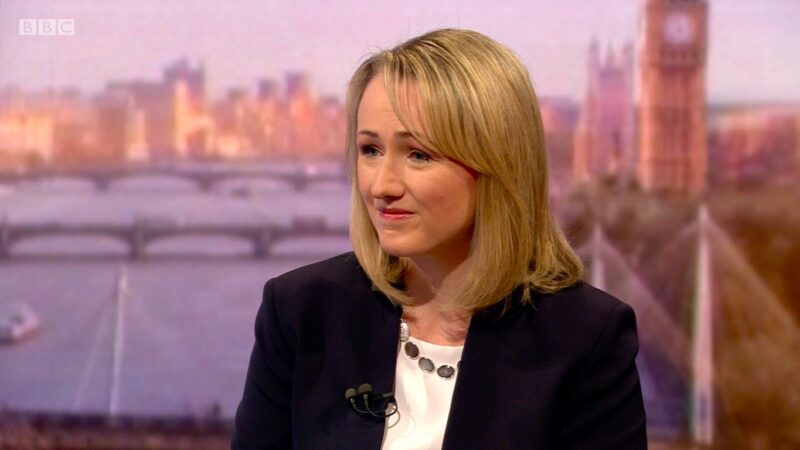
The internal Labour elections drew to a close at the start of this month, and when new leader Keir Starmer picked his shadow cabinet he handed a top job to former rival Rebecca Long-Bailey.
The MP for Salford and Eccles has moved from her role as Shadow Business Secretary under Jeremy Corbyn, and now been reappointed to the frontbench as Shadow Education Secretary. Here, we’ve take a look at the education policies she has backed in the past.
As the left-wing candidate in the recent leadership contest, it’s not surprising that much of what she has said reaffirms commitments in the last two manifestos. But we think it’s useful to take a look at what she has said specifically about education as a Labour MP.
Abolishing university tuition fees
The new education spokesperson has been a longstanding and staunch supporter of the policy that formed a key plank of both the 2017 and 2019 general election manifestos.
Commenting on the election result before she entered the leadership race, Long-Bailey said: “There are many lessons to learn from the defeat, but it’s clear we didn’t lose because of our commitments to scrap universal credit, invest in public services or abolish tuition fees.”
Creating a National Education Service
Long-Bailey fully supports the creation of a National Education Service. The NES is based on the idea of education ‘from cradle to grave’ – free at the point of use, incorporating all forms of education from early years through to adult learning.
Featuring in both of the last Labour manifestos, a group of 16 was appointed by Corbyn in February 2019 to a commission focused on expanding lifelong learning as a key part of the NES. Gordon Marsden wrote about its continued importance amid coronavirus.
Introducing free school meals for all primary school children
Long-Bailey also reaffirmed the 2017 and 2019 commitments to introduce free school meals for all primary school children during her leadership campaign. The new education spokesperson cited the policy as essential to the cradle-to-grave offer of the NES.
Research shows that there are around one million children who live in poverty but don’t receive school meals, and that the policy would be worth around £400 a year per child for families.
Ending the academy and free school system
In February, Long-Bailey penned a piece for LabourList outlining her “green, democratic and socialist” vision for local government, in which she pledged to bring in “local democratic control of schools”.
She later confirmed that she wanted to “end the fragmentation and marketisation of our schools” and that local authorities should be responsible for delivering education – borrowing some lines from the 2019 manifesto.
Her position is exactly that of Labour’s policy platform for December last year. The 2017 manifesto committed the party only to opposing “any attempt to force schools to become academies”.
Abolishing Ofsted
The Salford MP also confirmed her commitment to the 2019 manifesto pledge to replace Ofsted with a new body. In a Q&A session a month before the conclusion of Labour’s leadership election, Long-Bailey said: “We need a democratically accountable inspectorate designed to drive genuine improvements in our schools.
“This new system must see local authorities and inspectors working hand-in-hand with teachers, doing away with the current system, which is punitive, fixated on league tables at the expense of meaningful standards.”
Bringing back the educational maintenance allowance
Educational maintenance allowance, EMA, which offered weekly finance to 16-18 year old students in low-income households to keep them in further education, was scrapped by the coalition government in 2010.
In her bid to become the Labour leader and as part of her ‘aspirational socialism’ platform, Long-Bailey committed to the 2017 and 2019 Labour pledge to restore EMA – describing the benefit as a “lifeline for poorer students”.
Abolishing private schools?
Labour advocated removing the VAT exemption on private school fees in both of the last elections, and the then leadership hopeful included the pledge in her policy platform earlier this year.
But could she be about to go further? In a recent letter to the Education Secretary, Long-Bailey pointed out that many private schools are facing financial difficulty as a result of coronavirus. She asked: “What steps are your department taking to support such settings, particularly integrating them into the state sector?”
Abolishing private schools is certainly a popular policy with the rank-and-file of the Labour Party – a motion was successfully passed at the 2019 conference calling for the redistribution of their endowments, investments and properties across the state sector.
YouGov polling during the leadership election for the Long-Bailey campaign showed that 48% of Labour members were still in favour of the policy, compared to only 18% against.




More from LabourList
‘Ukraine is Europe’s frontier – and Labour must stay resolute in its defence’
Vast majority of Labour members back defence spending boost and NATO membership – poll
‘Bold action, not piecemeal fixes, is the answer to Britain’s housing shortage’